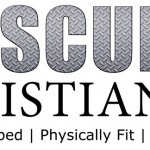The Mechanics of Forgiveness | Part I

Your Cheatin’ Heart
Imagine you see your sweetheart being affectionate with another person.
You’re shattered.
You can imagine talking to them, trying to not fall apart as you’re picking up the broken pieces of your heart off the floor.
At one point, they say, “I’m sorry. Will you forgive me?”
You wipe the tears from your eyes, you catch your breath and you say, “Yes, I will.”
But no sooner do you get the words out of your mouth then your sweetheart looks at you and says…
“Of course, you know I’ll do this again.”
However ludicrous as that scenario may sound, that’s the way in which some people apologize to their Heavenly Father and ask for forgiveness.
While the image of a cheating boyfriend or girlfriend following up their plea for mercy by saying that they plan on being unfaithful again makes it easy to see that they’re really not asking for forgiveness, why is it that so many people want to believe that “confessing” their sins with no intention of changing their behavior somehow qualifies as a reverent appeal for grace?
This is a four part series that looks at what Forgiveness is and how it needs to be looked at from the standpoint of your relationship with Christ.
You ready?
Buckle up!
What is Forgiveness?
Here’s the thing…
In order for Forgiveness to resonate as a legitimate appeal for grace, three things have to be in place:
Think CAR..
1) Confession -> First, you need to be willing to concede the fact that what you’ve done is wrong. The Bible calls that confession. You’re “agreeing” that you’ve done something wrong (1 Jn 1:9).
2) Authority -> Secondly, you’re acknowledging that the person whose forgiveness you are seeking is the one that has been wronged. You wouldn’t ask for forgiveness from someone who wasn’t impacted or involved by what you’ve done, right? So when you ask someone for forgiveness, you’re identifying that person as the one who’s been offended by your behavior and consequently it’s their forgiveness that you’re needing – they have the “authority” to forgive you.
You see that illustrated in Second Samuel when Nathan confronts David about what he had done with Bathsheba. David was guilty of both adultery and murder and while he had wronged several parties, he realized that ultimately his actions were a sin against God (2 Sam 12:13; Ps 51:4) – the Ultimate Moral Authority.
3) Repentance -> Finally, when you’re asking for forgiveness, you’re declaring a resolve to not repeat the offense. The Bible calls this Repentance (Prov 28:13; Lk 5:31-32; Acts 2:38; Heb 6:4-6).
Literally, Repentance means “to change your mind.” If you’re truly sorry and desiring to be forgiven, it follows that you’re determined to not repeat the same behavior.
You see those elements represented in 2 Chronicles 7:14:
if my people, who are called by my name, will humble themselves and pray and seek my face and turn from their wicked ways, then I will hear from heaven, and I will forgive their sin and will heal their land. (2 Chron 7:14)
Confession is implied by “humbling” yourself. The fact that you’re praying is indicative of an acknowledgment of His Authority and you’re repenting when you “turn” from you wicked ways.
You want to be honest with yourself and your Heavenly Father when you ask for His forgiveness because should you be “posing” rather than praying, 2 Chronicles 7:14 makes it clear that only when humility, reverence and repentance are in place – it’s then that He hears from heaven and forgives your sin.
Forgiveness, from the standpoint of Scripture, can be defined as “God’s restoration of relationship that entails the removal of objective guilt.” It’s an awesome manifestation of His Mercy and Grace in that when you disobey God, it’s not just the sin, it’s Who you’re sinning against that makes it so heinous. Yet, despite the toxic nature of our sin, God is willing to forgive it. But in order for that forgiveness to be extended you have to confess what you’ve done and not merely go through the motions (1 Jn 1:9). Otherwise, you’re not asking for forgiveness as much as you’re just making a statement that says you’re not sorry, you’re not wrong and you don’t care.
If God is the One Who you believe to be worthy of your time and attention (Col 3:4), then you want to be familiar with the mechanics of forgiveness. Pop the hood on that “CAR,” and be certain that you’re not leaving anything out so you can experience the freedom of a clear conscience (Ps 32:1-2) and the certainty of a person with a clear direction (Ps 66:18; 139:23-24; 1 Jn 5:18).
Click here for “The Mechanics of Forgiveness | Part II.”







Leave a Reply
Want to join the discussion?Feel free to contribute!